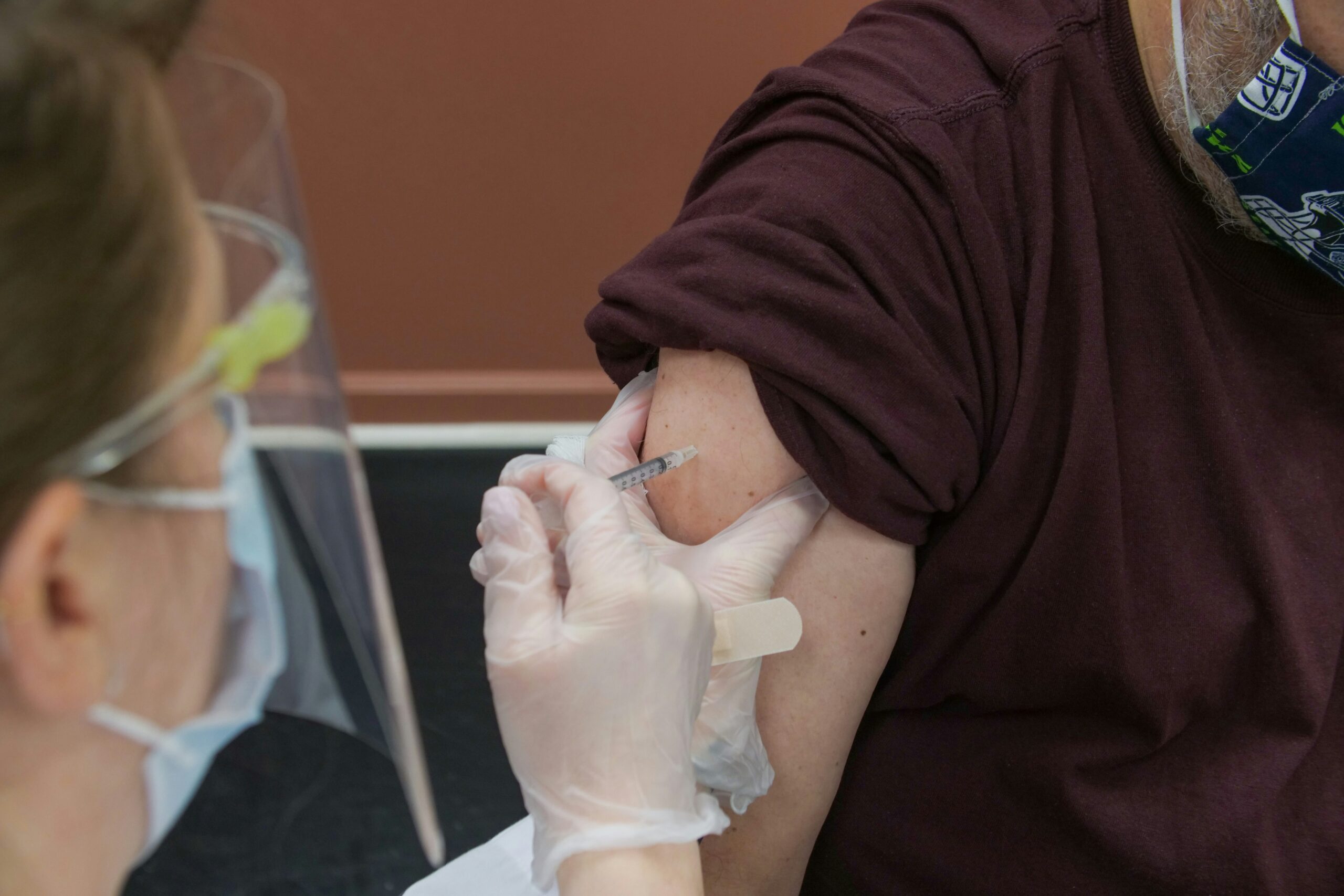Benzodiazepine withdrawal happens when a person with a physical dependence on or an addiction to benzodiazepines (also called benzos or BZD) suddenly stops taking them. Going “cold turkey” can be fatal and the FDA cautions that healthcare professionals create a patient-specific plan for reducing dosage and managing withdrawal when someone wants to stop taking benzodiazepines.
The symptoms of benzo withdrawal can set in within 24 hours of taking a reduced dose. The timeframe of withdrawal symptoms ranges from person to person. People who want to stop using benzodiazepines should always seek the help of a medical professional.
What are Benzodiazepines?
Benzodiazepines are a class of synthetic drugs commonly used to reduce anxiety, manage seizures, relax muscle spasms and treat insomnia. They impact the neurotransmitter GABA (γ amino butyric acid), which suppresses nerve activity, to create a calming and tranquilizing effect within the brain. These conditions often fluctuate in their severity, so benzodiazepines are often prescribed for short-term, “take as needed” use.
Commonly prescribed benzodiazepines and their uses include:
- Alprazolam (Xanax) – Anxiety disorders
- Chlordiazepoxide (Librium) – Alcohol withdrawal and irritable bowel syndrome
- Diazepam (Valium) – Alcohol withdrawal, seizures, insomnia and panic attacks
- Flurazepam (Dalmane) – Insomnia
- Clonazepam (Klonopin) – Panic attacks and seizures
- Lorazepam (Ativan) – Insomnia, anxiety disorders and anesthesia
- Temazepam (Restoril) – Insomnia
- Midazolam (Versed) – Anethesia
Benzos are habit-forming drugs. They are not intended for long-term use and, in as little as 3-5 weeks, can create physical dependence – even if taken only as prescribed. Physical dependence means that a person has started to build a tolerance for benzodiazepines and will need to continue increasing their dosage to get the same effects. They may experience withdrawal when they stop taking the drug or reduce their dosage.
Benzodiazepine Withdrawal Symptoms
When someone with physical dependence on benzodiazepines stops using them or reduces their dose, withdrawal can set in within 24 hours. Withdrawal timeframes and symptoms may vary from person to person. BZD withdrawal symptoms can last just a few days, but they have the ability to linger for several months. In some cases, people experience withdrawal symptoms for years after their last use.
Many factors influence withdrawal length and severity, including:
- How long someone has been taking benzos
- Their dosage
- Misuse of the drug or the development of a substance use disorder
- If the person has another mental health condition
- Whether the person uses other drugs (such as alcohol or opioids) with their benzodiazepines
Although each person’s experience varies slightly, there are three general stages of benzodiazepine withdrawal. These withdrawal symptoms can be life-threatening. Before altering any benzo use, the individual should seek the guidance of a healthcare professional and develop a plan for withdrawal management.
Early Withdrawal Symptoms
The early withdrawal phase occurs within a few hours to a few days after stopping the benzodiazepines. The symptoms are sometimes called rebound symptoms, as the person starts to feel the return of whatever symptoms they originally started taking benzos to manage.
These can include:
Mid/Acute Withdrawal Symptoms
Within a few days, the person will enter acute withdrawal. These symptoms tend to be the most physically and emotionally distressing. They tend to start a few days after the initial withdrawal symptoms and usually last between 5 to 28 days.
They may include:
- Concentration problems
- Agitation and irritability
- Increased anxiety and hypervigilance
- Panic attacks
- Hand tremors
- Heart palpitations
- Headache and migraines
- Muscle pain
- Vomiting and nausea
- Psychosis
- Suicidal thoughts
People who have experienced benzo withdrawal often say that this stage is the most difficult. Most of the symptoms of withdrawal occur during the acute phase. Medication assisted treatment (MAT) is often used by doctors to manage problematic and dangerous withdrawal symptoms during this phase.
Long-Term/Protracted Withdrawal Symptoms
Protracted withdrawal refers to the possible long-term effects of benzo withdrawal. About 10 to 25% of people who go through benzo withdrawal develop post-acute withdrawal syndrome (PAWS). These symptoms may affect them for 12 months or more.
Common Benzodiazepine Withdrawal Symptoms can include:
- Mood swings
- Depressed mood (including suicidal thoughts, apathy and pessimism)
- Anxiety or panic
- Agitation and irritability
- Muscle twitches
- Tingling
- Cognitive problems (due to brain trauma)
Protracted withdrawal symptoms can drastically impact quality of life. They may lead to significant problems with relationships, work performance and other facets of a person’s life. Integrative treatments, which include a combination of counseling, holistic therapies and medications to help manage withdrawal, look at the person as a whole and may improve their recovery journey.
Are Benzodiazepine Withdrawals Fatal?
Benzodiazepine withdrawal can be fatal. In the most severe cases, people can experience lethal side effects that can include seizures, convulsions and psychotic symptoms. These symptoms are not always predictable. Withdrawal symptoms can be complicated and more severe when people mix other substances, like alcohol, opioids or illicit drugs.
If someone has a history of suicidal ideation, the withdrawal process may exacerbate these urges. Sadly, it is not uncommon for people to engage in suicidal behavior when withdrawing from benzodiazepines. The person may feel discouraged and hopeless, which can lead to self-destructive thoughts and behaviors.
Most medical professionals advise seeking medical detox when discontinuing benzodiazepine use. A medical detox, such as the one offered at Lakeview Health, provides the structure, monitoring and support needed to ensure the individual’s emotional and physical safety during withdrawal.
Side-effects of Benzodiazepine Use
Although benzos can be very effective in treating various conditions, they can cause a number of side-effects. It is important to inform your doctor if you experience any of these, even if used as prescribed. Benzodiazepine use should always be closely monitored by your physician.
Adverse effects of benzodiazepines include:
- Drowsiness or sedation
- Psychomotor impairment (such as being extremely uncoordinated or unable to move)
- Mood problems (including the potential development of depression and suicidal thoughts)
- Cognitive impairment (such as memory loss)
- Development of physical dependence on BZD
- Development of a substance use disorder involving BZD
Benzodiazepines are extremely high-risk drugs for the elderly, people taking opioids or opioid withdrawal medication and anyone taking drugs that depress the central nervous system (such as alcohol). There can be serious side-effects, such as slowed breathing and death.
Misuse/Abuse Symptoms
It can be difficult to discern a benzodiazepine addiction. People can form a physical dependence on benzos, yet not be addicted to them. The FDA advises that healthcare professionals who prescribe BZD consider the risks of abuse, misuse and addiction and continue to monitor the use of benzos during therapy.
The Diagnostic and Statistical Manual of Mental Disorders 5 (DSM-5) lists 11 factors that doctors need to consider when making a diagnosis of sedative, hypnotic or anxiolytic use disorder (which benzo addiction falls under).
Some of the signs of benzodiazepine misuse or addiction include:
-
- Taking more benzodiazepines (or in higher frequencies) than intended
- Withdrawing from normal activities or relationships due to benzo use
- Using benzodiazepines in hazardous conditions
- Experiencing problems at work or school due to benzodiazepine use
- Building a tolerance to the drug
- Spending excess time obtaining, using, or recovering from benzodiazepines
- Experiencing withdrawal effects when abstaining from benzodiazepines
If you have seen any of these signs in yourself or a loved one, contact Lakeview Health today at 866.704.7692 to discuss possible treatment options.
How Overdose Occurs on Benzos
Benzos are rarely the sole cause of overdose and death. Using benzodiazepines to enhance the effects of other drugs is often a sign of a substance use disorder and should be taken very seriously. Benzos are often misused in conjunction with opioids and alcohol and this becomes extremely dangerous. Polysubstance abuse is the main cause of death involving benzodiazepines.
Contact 911 if you suspect that you or someone you love has overdosed on benzodiazepines or is going through severe benzo withdrawal. Seizures, unconsciousness or difficulty breathing, along with any other serious adverse effects, can be life-threatening.
Best Treatment Option Benzodiazepine Withdrawal
Benzodiazepine addiction can be detrimental to you or your loved one’s well-being. Withdrawal can be fatal and stopping cold-turkey is not advised. It is essential to seek a qualified medical detox program and access to supportive therapeutic interventions. A rehabilitation treatment center, such as Lakeview Health, can provide the medical and psychological support you or your loved one needs.
There is a misconception that rehabilitation facilities do not accept people who have become physically dependent on or addicted to prescription drugs – like benzodiazepines. Withdrawal from prescription drugs can be life-threatening and is best managed by an expert team of healthcare professionals, such as our team at Lakeview Health. We provide a safe, comfortable environment that allows safe detox from benzodiazepines and focuses on integrative healthcare – treating mind, body, and spirit.
If you or a loved one needs help to stop using benzodiazepines, the team at Lakeview Health is here to help you. Please contact our admissions team today at 866.704.7692.
Learn more about prescription drug addiction treatment and how Lakeview Health can help you or a loved one recover.




